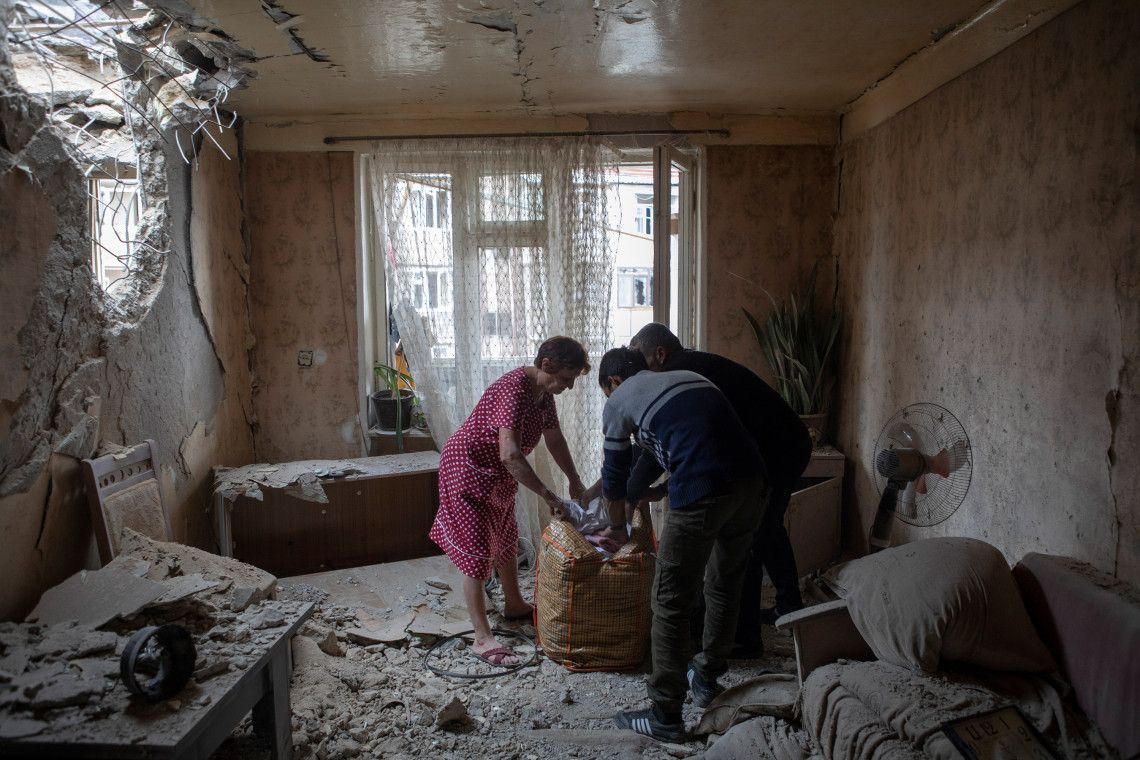Nagorno-Karabakh Conflict: Ethnic Armenians Agree to Russia's Ceasefire Proposal
In a significant turn of events, ethnic Armenians in Nagorno-Karabakh have accepted a ceasefire proposal put forward by Russian peacekeepers. This development came after Azerbaijan initiated a military campaign, termed as an "anti-terrorist" operation, in the contested territory on Tuesday. Background: Nagorno-Karabakh, a landlocked region situated within Azerbaijan,

In a significant turn of events, ethnic Armenians in Nagorno-Karabakh have accepted a ceasefire proposal put forward by Russian peacekeepers. This development came after Azerbaijan initiated a military campaign, termed as an "anti-terrorist" operation, in the contested territory on Tuesday.
Background:
Nagorno-Karabakh, a landlocked region situated within Azerbaijan, has been a persistent flashpoint between the two countries. While internationally recognized as part of Azerbaijan, its population predominantly consists of ethnic Armenians. This group disputes Azerbaijan's sovereignty and has established its de-facto governance, albeit without global recognition, including from Armenia itself.
Ceasefire Details:
The ceasefire, set to commence at 1 p.m. local time on Wednesday, was officially announced by Nagorno-Karabakh’s presidential office. The statement outlined an agreement for the withdrawal of Armenian armed forces from the deployment zone of Russian peacekeepers, further emphasizing on the dissolution and complete disarmament of these forces.
Consequent to the ceasefire declaration, Azerbaijan's defense ministry confirmed a halt in their operations, with officials planning to convene with Armenian community representatives in Nagorno-Karabakh on Thursday. The meeting's focus would be the reintegration discussions under Azerbaijan's constitutional framework.
However, the Nagorno-Karabakh presidency highlighted the challenges faced during the defense against Azerbaijani forces, mentioning the considerable numerical advantage of the latter and resultant casualties.
Historical Context:
This region has witnessed two major wars between Armenia and Azerbaijan over the last thirty years. The recent 2020 conflict, spanning 44 days, ended with a Moscow-brokered ceasefire. Following this agreement, Russia stationed approximately 2,000 peacekeepers in the area to deter further escalations. Nonetheless, accusations arose of Russia's peacekeepers failing in their duty, particularly after Azerbaijan-supported military checkpoints were established in December 2022, leading to blockades affecting critical imports.
Current Scenario:
Post Azerbaijan's recent strikes, Armenia's Security Council Secretary, Armen Grigoryan, criticized Russian peacekeepers for not protecting Nagorno-Karabakh adequately. Kremlin spokesman, Dmitry Peskov, dismissed these accusations as baseless during a press briefing. He underscored Moscow's ongoing diplomatic engagements with both Baku and Yerevan and highlighted efforts to support the ethnic Armenians in Karabakh.
Additionally, Peskov revealed that plans are underway for a telephonic dialogue between Russian President Vladimir Putin and Armenian Prime Minister Nikol Pashinyan. A potential conversation with Azerbaijani President Ilham Aliyev is also on the cards.
In conclusion, the Nagorno-Karabakh conflict remains a volatile issue, with global eyes trained on the region, hopeful for a lasting peace solution.




